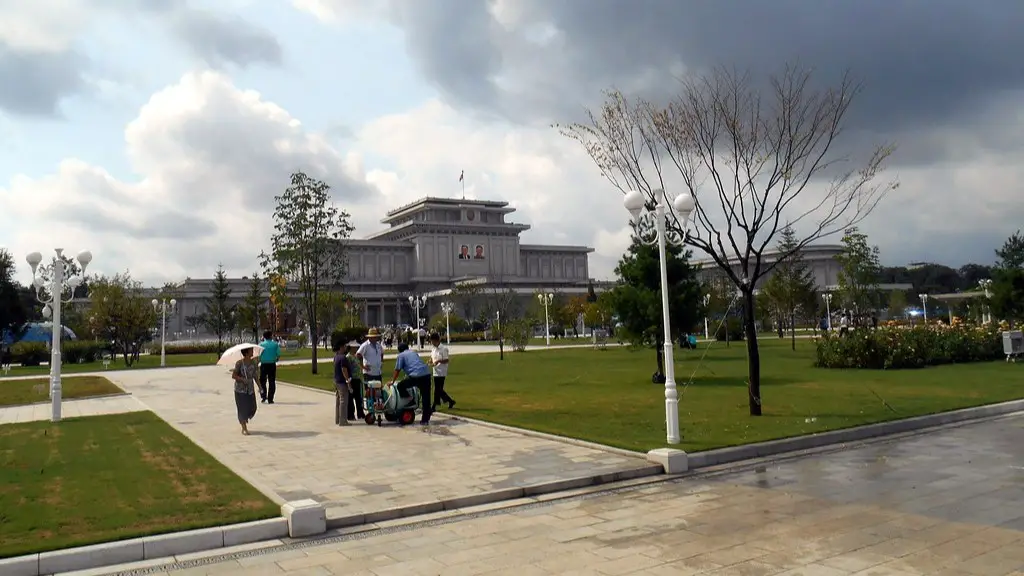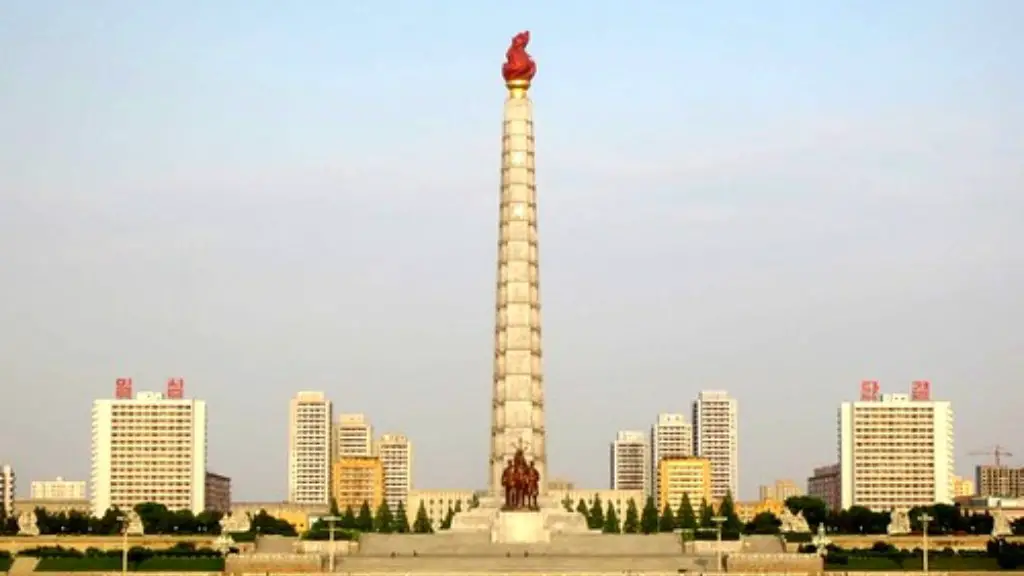North Korea’s Nuclear Progression
North Korea has been ramping up its nuclear weapons development over the last two decades, beginning with its first successful test of a nuclear weapon in October 2006. Since then, North Korea has continued to conduct further tests and development of its nuclear weapons program, resulting in an ever-growing stockpile of bombs. The most recent test took place in January of last year and was estimated to have yielded an explosive yield of up to 120 kilotonnes, which is over 10 times the size of the bomb detonated in Hiroshima.
Despite its continued development, North Korea is not allowed to have nuclear weapons under international law. The United Nations Security Council has unanimously condemned and imposed sanctions on the country for its continued development of nuclear weapons. In response, North Korea has threatened to take military action against any country that attempts to stop its nuclear weapons program.
International Response
The international response to North Korea’s nuclear weapons program has largely been one of condemnation and sanctions, with the UN Security Council unanimously condemning the country for its continued refusal to cease its weapons development. Despite the international pressure, North Korea has responded with continued development of its weapons, most recently with the test of a long-range ballistic missile in late 2017.
The international community has also responded with a range of diplomatic efforts, seeking to restrain North Korea’s nuclear program and encourage the country to return to the negotiating table. So far, these efforts have largely been unsuccessful, with the country refusing to negotiate on the basis that their nuclear program is a necessary deterrent against aggression from international powers.
Experts Perspectives
Experts in the fields of international security and nuclear capabilities have varying views on North Korea’s nuclear program. Some experts have argued that the current sanctions imposed by the UN and international powers are not strong enough, and should be increased in order to force North Korea to become more proactive in negotiating a resolution. Others have argued that current sanctions are causing more harm than good, and instead should be replaced with incentives to encourage the country to participate in negotiations.
Overall, however, the majority of experts agree that allowing North Korea to possess nuclear weapons is unacceptable and that action needs to be taken to limit their capabilities and ensure that the country does not become a nuclear proliferator.
Economic Impact
The economic impact of North Korea’s nuclear program is considerable and is having an effect on a global scale. The sanctions imposed on the country by the international community have caused its economy to suffer, with the country facing a severe shortage of food and an inability to access foreign markets. This has in turn caused an increase in poverty and hunger in North Korea, as well as an influx of refugees attempting to flee the country to escape its harsh economic conditions.
At the same time, the international sanctions are having an effect on the economies of countries that trade with North Korea, primarily China and Russia. Both countries have seen a decrease in trade with North Korea, and have been forced to curtail their own investments in order to comply with the international sanctions.
Military Impact
The acquisition of nuclear weapons by North Korea has had a profound impact on regional military dynamics. In response to North Korea’s acquisition of nuclear capabilities, the US has deployed a fleet of warships to the region and has increased military exercises in the Sea of Japan. South Korea has responded by conducting its own naval exercises and increasing the number of troops stationed in the region.
The military buildup has created tension in the region, as both sides have been preparing for the possibility of war. This has led to an increase in arms sales and military spending by countries in the region, as well as an increase in threats and aggressive rhetoric between North Korea and its neighbors.
The Impact on the People
North Korea’s nuclear program has had a devastating effect on the lives of its people. The country is subject to a strict set of international sanctions, resulting in severe shortages of food and medicine, as well as an inability to access foreign markets. This has in turn led to an increase in poverty, malnutrition and disease in North Korea, with the country facing a severe humanitarian crisis as a result of its nuclear program.
At the same time, the country’s military buildup and aggressive rhetoric has caused an increase in tensions between North Korea and its neighbors. This has led to an increase in refugee flows from the country, as people flee from the threat of war and the harsh living conditions they are subjected to under the strict international sanctions.
Talks And Diplomacy
Despite the continued development of North Korea’s nuclear program, there has been some progress in talks and diplomacy between North Korea and other countries in the region. In 2018, North Korea agreed to take part in talks with the US, South Korea and Japan, an agreement that has been hailed as a positive step towards the denuclearization of the region.
However, talks have hit a stalemate in recent months, with the US and North Korea disagreeing over the pace of denuclearization and US demands for an accounting of the North’s nuclear and ballistic missile programs.
How Other Countries Are Responding
Other countries in the region have also been responding to North Korea’s nuclear program in various ways. Japan has been conducting its own naval exercises in the region and has imposed its own set of sanctions on North Korea. South Korea has also been working on a range of diplomatic initiatives in an attempt to resolve the crisis and has increased its military presence in the region.
At the same time, China has been working to maintain its own diplomatic connections with North Korea, seeking to prevent further escalation of the crisis. Russia has also sought to keep channels of communication open with North Korea, while also seeking to cooperate with the international community on the issue.
Assessment Of The Situation
The current situation regarding North Korea’s nuclear program is difficult to assess. On the one hand, the international community is steadfast in its condemnation of the country’s nuclear program and is seeking to limit its weapons capability. At the same time, diplomatic efforts have yielded little success and the international sanctions have caused immense suffering for the country’s population.
What is certain is that North Korea’s nuclear program presents a threat not only to the region, but to the entire world. The international community must continue to work together to find a resolution to this crisis, in order to ensure that the region, and the world, remain safe from the threat of nuclear weapons.


